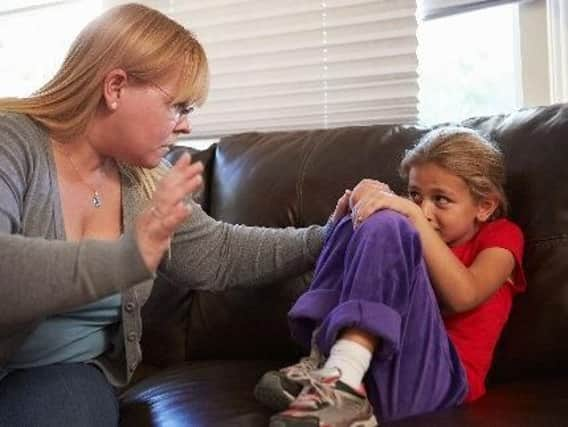New Zealand Christian group leader claims Scotland's smacking ban law is "ideological nonsense"


Bob McCoskrie, national director of Family First NZ, a conservative Christian lobby group, has been fighting the ban in his home country since it came into force more than a decade ago - and he wants Scotland to take heed.
The Scottish Government is supporting a bill put forward by Green MSP John Finnie to abolish the legal defence of "justifiable assault," which is currently available to parents to justify the use of physical force to discipline a child.
Advertisement
Hide AdAdvertisement
Hide AdAt present, Scottish law prohibits parents from shaking their child, striking their head and using an "implement" during punishment.
But the new legislation, expected to be passed at Holyrood within the next year, would ban smacking of any sort - and parents could face jail if they flout the law.
'Criminalising good parents'
Mr McCoskrie said: "Your smacking ban law to be passed by politicians (in Scotland) is ideological nonsense which will do nothing to solve rates of child abuse, and will simply criminalise good parents raising great kids."
He said that in many cases parental guidance and correction will be non-physical such as grounding a child, withdrawing their privileges or telling them off, but sometimes a parent may "reasonably decide" a smack is the most effective way to prevent or correct unacceptable behaviour.
Advertisement
Hide AdAdvertisement
Hide AdHe says many adults received a well-warranted smack when they were younger but didn't think of it as abuse, and that although some parenting techniques do become abusive, this says more about the type of parents.
Mr McCoskrie also says that, since the 2007 introduction of the law in New Zealand, Family First has not found a single social indicator relating to the welfare of children which shows improvement. He claims this is evidence for the ban's failure, and quotes police statistics from 2016 which show significant increases in the reporting of child physical and sexual abuse in New Zealand since 2007.
Mr McCoskrie also referred to a 2016 survey which found that two-thirds of parents in New Zealand said they would be willing to flout the law, and highlighted a 2011 study which suggested a third of parents had been threatened by their children with being reported to police if they were smacked.
When asked why politicians in New Zealand had not changed the law in the past 10 years if it has indeed failed, he replied: "They don’t like admitting mistakes. Pure and simple."
Strong backing in Scotland for new laws
Advertisement
Hide AdAdvertisement
Hide AdThe Children (Equal Protection from Assault) (Scotland) Bill was unveiled at Holyrood last week and has the backing of First Minister Nicola Sturgeon, the Scottish Police Federation, Barnardo’s Scotland, the Church and Society Council of the Church of Scotland and the NSPCC, among others. A previous consultation on the bill also received more than 650 responses and nearly 75% supported it.
Mr Finnie stressed previously that the legislation will give children the same legal protection from assault as adults. He says it will not change the way that police and social work deal with assault against children and, rather, would establish the principle that assault can never be "justifiable."
Scottish Government response to McCoskrie's claims
Minister for Children and Young People, Maree Todd, said: "Our vision is for Scotland to be the best place in the world for children to grow up. That's why we support giving children and young people the same protection against assault as adults already have, bringing Scotland into line with many other countries around the world.
"This bill sends a clear signal that all physical punishment of children is wrong. Evidence shows that this can lead to aggressive and problematic behaviour into adolescence and adulthood.
"And, there is overwhelming public support for the bill. A YouGov poll in 2015 showed that over 90 per cent of those surveyed want to see children have at least the same protection rights as adults."
